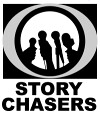Bell-Bounded Learning - Learning which takes place within the limits of a class period or a school day. Learning stops when students leave the confines of the classroom and they are no longer in an educational enviornment.
The definition of Bell-Bounded Learning above is one that I made up. Why? Because although I have diligently searched, I could find no other definition.
I first heard the term Bell-Bounded Learning at
Edubloggercon "Live in San Antonio" at NECC 2008. I was attending a session called:
If the Leaders Don't Get It, It's Not Going To Happen - How can we best help school principals and superintendents move schools into the 21st century? What are their special needs and concerns? What are ways we should not approach training for these folks?
The session was large so we broke into some smaller groups to better facilitate discussion.
Wes Fryer and
Stephanie Sandifer were in my group and the term came up. I don't know who first said it but Wes talked about it and we all tried to get our heads around the concept. Later at the
k12 Online Conference session facilitated by Wes,
Sheryl Nussbaum-Beach, Darren Kuropatwa live via UstreamTV from Canada, and others, Wes mentioned the term again and also talked about
Unbounded Learning. You can see it in this
UstreamTV feed of that session.
Obviously, Unbounded Learning is what we should strive for as teachers and we should not be Bell-Bounded Teachers.
I did find some interesting resources online on Unbounded learning that I will share:
Bounded and Unbounded Knowledge: Teaching and Learning in a Web 2 World. This article was written by Judy Nagy, Director DMO Program, Deakin Business School and Chris Bigum, Faculty of Education, Deakin Business School, Melbourne Australia.
Unbounded Learning is an international company. Their stated mission
is to connect the virtual community between knowledge providers and seekers who are constantly on-the-go. We continue to architect and develop state-of-the-art technology that makes available knowledge and information on demand and by intelligent push to the users of average mobile devices. , 2008
"Lively and Learning"There are some more resources about Unbounded Learning out there and I will let those who choose to comment to the post add to this discussion.
I guess the key for us as educators is this. Are we going to break free from the traditional methods of teaching that we were taught by as 20th century learners, or are we going to accept the 21st century challenge to take a critical look at how we are teaching our students? Will we recognize that along with our students, we are learners as well learning right along with our students these new Web 2.0 tolls and technologies in able to bring them into the classroom?
I think that this year I will choose the latter. I am initiating a new project-based learning concept in my classroom called the
HSTE Project. I have no idea what the final outcome will be at the end of the school year next June, but it is something that I want to try so as not to be a bell-bounded teacher, confined to a bell-bounded classroom with bell-bounded students!


